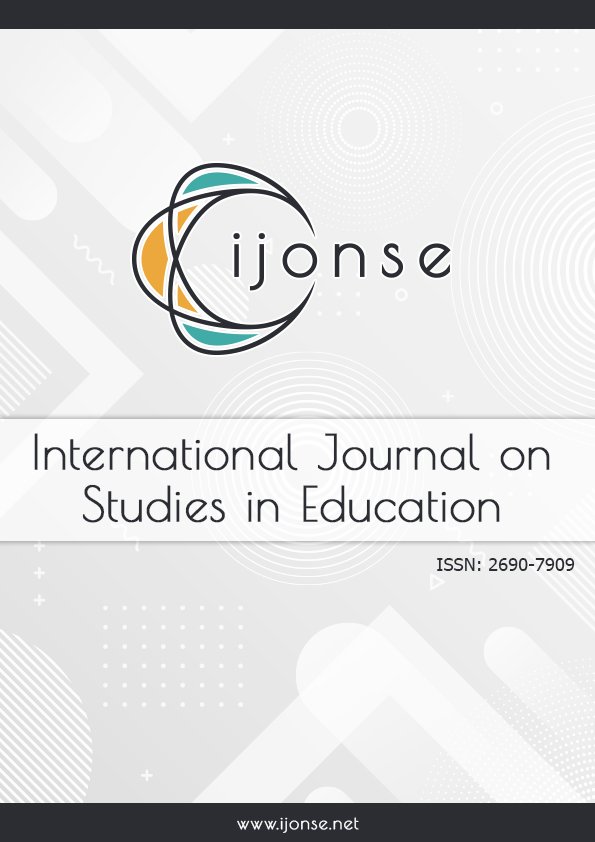Examining Hispanic Preservice Teachers’ Perceptions of Scientists in a Science Methods Course
DOI:
https://doi.org/10.46328/ijonse.62Keywords:
DAST test, Images, Preservice teachers, ScientistsAbstract
This article describes the intervention strategies implemented in an effort to affect a group of Hispanic pre-service elementary teachers’ images of scientists during a science methods course in a teacher preparation program in the U.S.-Mexico border region. Although there is an extensive volume of research reporting on the use of the DAST-C instrument to study K-16 students’ images of scientists, the number of studies on exploring and influencing preservice teachers’ views of science and scientists is rather scarce. Findings in this study indicate that a semester-long intervention strategy focused on (a) pre-service teachers’ generated inquiry project, (b) written reflections on inquiry learning, and (c) a pre and post-drawing tests, allowed participants to reflect on their views about scientists and science, and experience a gradual shift from views conforming to stereotypical views of scientists to portrayals of science practitioners as individuals, just like other people in our society pursuing real interests.References
Medina-Jerez, W. & Middleton, K. (2022). Examining Hispanic preservice teachers’ perceptions of scientists in a science methods course. International Journal on Studies in Education (IJonSE), 4(1), 70-87. https://doi.org/10.46328/ijonse.62
Downloads
Additional Files
Published
Issue
Section
License
Articles may be used for research, teaching, and private study purposes. Authors alone are responsible for the contents of their articles. The journal owns the copyright of the articles. The publisher shall not be liable for any loss, actions, claims, proceedings, demand, or costs or damages whatsoever or howsoever caused arising directly or indirectly in connection with or arising out of the use of the research material.
The author(s) of a manuscript agree that if the manuscript is accepted for publication in the International Journal on Studies in Education (IJonSE), the published article will be copyrighted using a Creative Commons “Attribution 4.0 International” license. This license allows others to freely copy, distribute, and display the copyrighted work, and derivative works based upon it, under certain specified conditions.
Authors are responsible for obtaining written permission to include any images or artwork for which they do not hold copyright in their articles, or to adapt any such images or artwork for inclusion in their articles. The copyright holder must be made explicitly aware that the image(s) or artwork will be made freely available online as part of the article under a Creative Commons “Attribution 4.0 International” license.

This work is licensed under a Creative Commons Attribution-NonCommercial-ShareAlike 4.0 International License.





